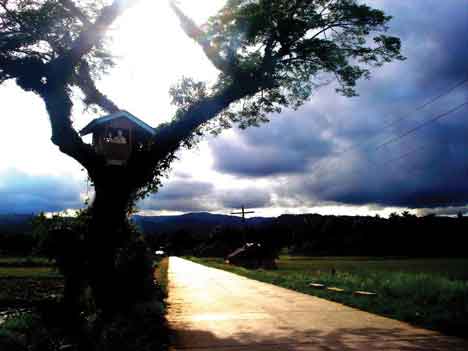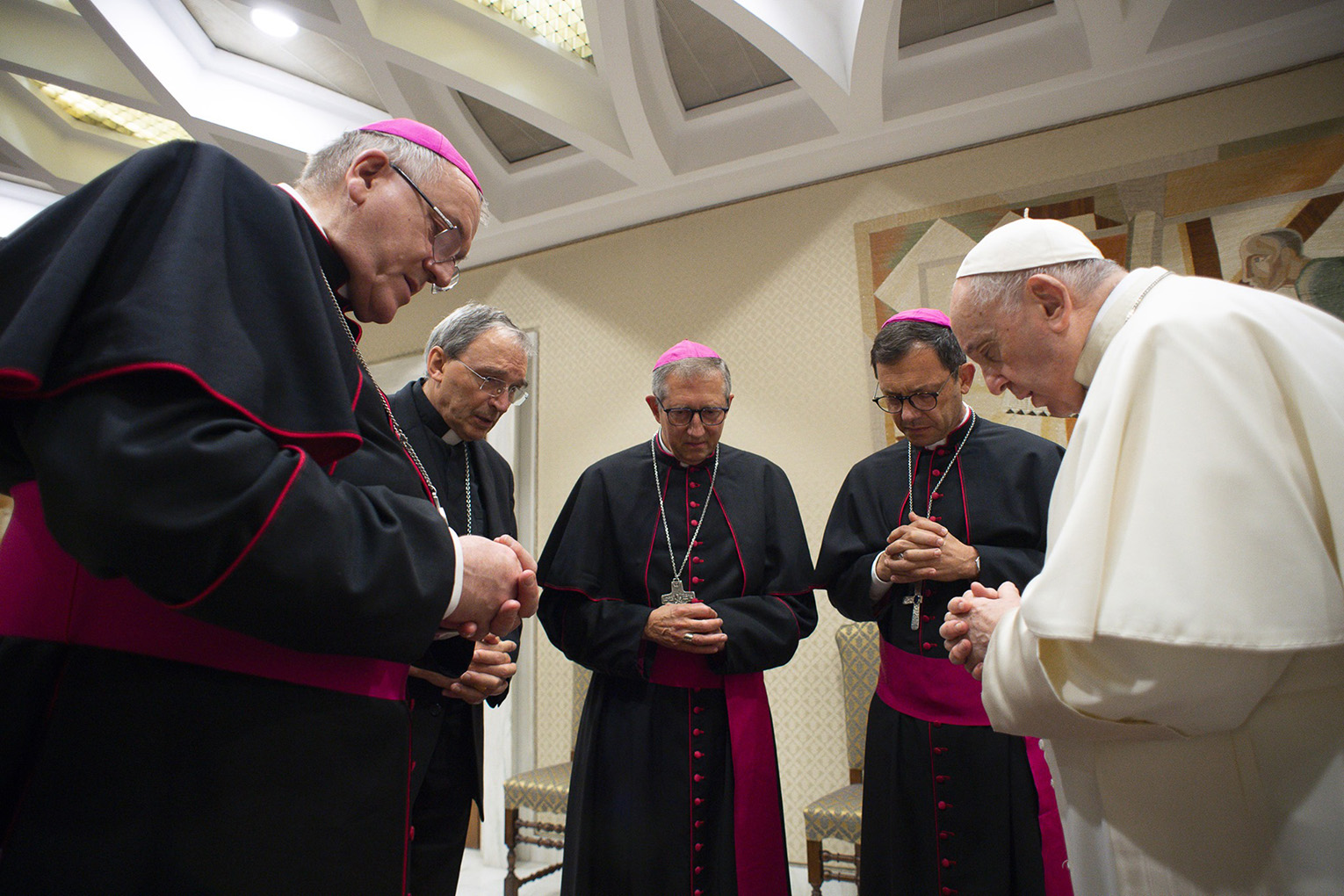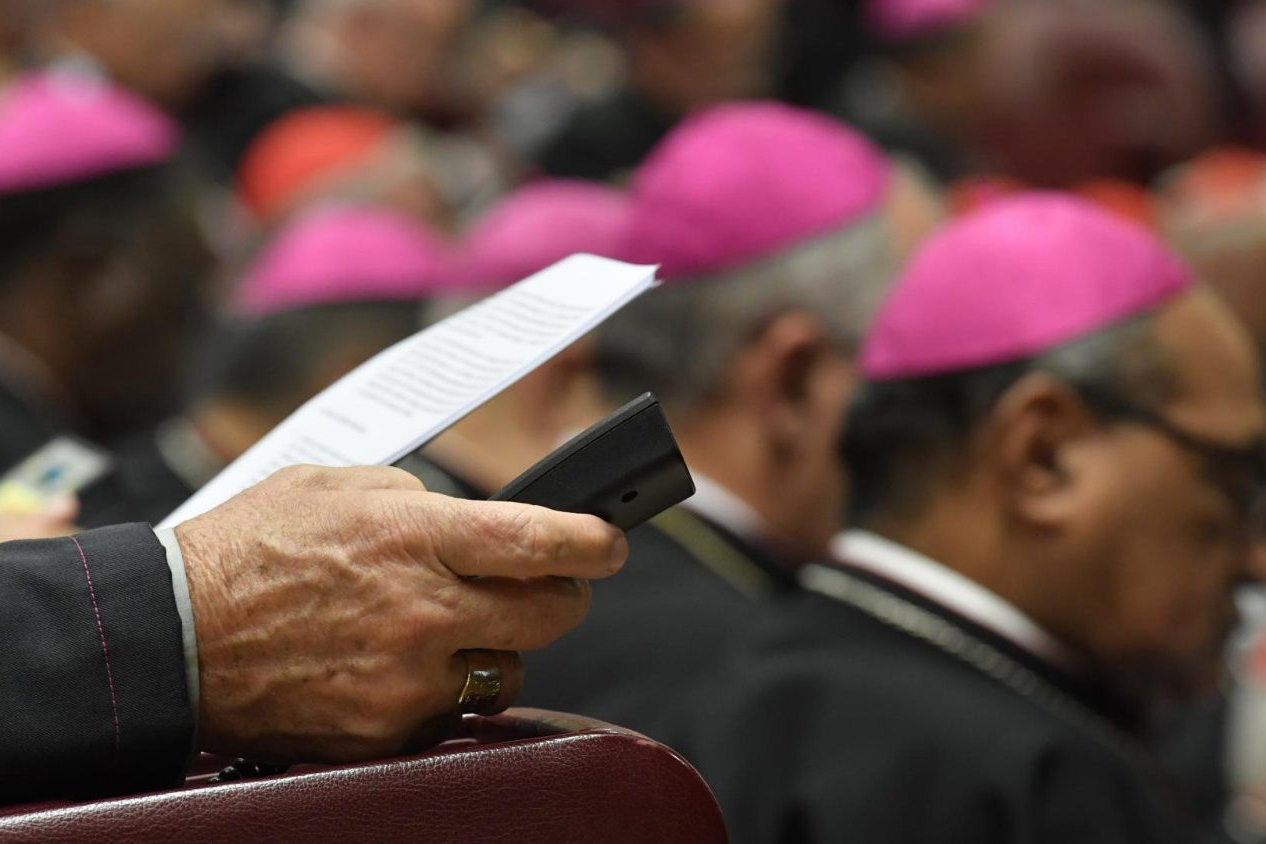
The Apostolic Prefecture of Battambang occupies the northwest region of Cambodia. It is one of three ecclesiastical units of the Catholic Church in the country. Catholics number only 30,000 (or 0.2%) out of a predominantly Buddhist population of 15 million. During the oppressive Khmer Rouge regime under Pol Pot in 1975-79, two million Cambodians lost their lives, including many priests and religious. The Church’s institutions were confiscated or reduced to ashes.
In 2000, in the aftermath of the war in Indochina, the Prefecture was created with its first Bishop, Enrique “Kike” Figaredo, S.J., a missionary from Spain. He had been working with the Jesuit Refugee Service since 1985 among the Cambodian refugees along the Thai border. Battambang became the Jesuits‘ mission area, with 8,000 Catholics spread out in 26 “parish” communities in nine provinces. The Jesuit presence in Cambodia today includes an international dimension with priests coming from Korea, Indonesia, the Philippines, India, Thailand, Ireland and Spain.
When we crossed the Thai border to Pailin in Cambodia, we were met by Fr. “Totet” Banaynal, a Filipino Jesuit missionary, and three Filipina Daughters of Charity. Fr. Totet comes from Wao, Lanao del Sur, and at times still shifts effortlessly from the Khmer tongue that he has mastered to his native Ilonggo accent. He was the founding president of the Central Student Government in 1985 in Xavier University before he entered the Society of Jesus. I ordained him as a priest with four other Jesuits in 1999. Since then he has spent more than 12 years as a missionary to Cambodia. As Vicar General, he directs the Oscar Romero Pastoral Center, which looks after the catechetical, media, advocacy, and cultural efforts of the prefecture. The center also provides a base for activities and facilities for a wide range of formation programs, including family life.
It was with this need for formation that Fr. Totet invited our Natural Family Planning trainers’ team from the Archdiocese of Cagayan de Oro to give a three-day seminar on September 23 – 25, 2013, in Battambang. With me were Ms. Ana Lea Pielago, our NFP program coordinator, and Mrs. Virginia Galas, a public school superintendent of values formation in Camiguin island, who had integrated our NFP modules in the DepEd curriculum.
During the first day of the seminar, we were greeted by about ninety participants, mostly women, seated on the floor and quietly eager to know about NFP. After the preliminary introductions, I presented the four pastoral guidelines or core values in our Responsible Parenthood & Natural Family Planning program – i.e., We are Pro-Life; for Responsible Parenthood as our goal; for Natural Family Planning as the means; and for helping couples make an Informed and Morally Responsible Choice. A Cambodian medical doctor did the translations from English to Khmer for all sessions.
The rest of the seminar was handled by Ann and Virgie. With the help of power-point presentations, they first discussed the four phases of the fertility cycle of a woman and the natural processes involved in the procreation of human life. On the second day they explained the steps for the daily charting of the Basal Body Temperature Method (BBT) and the Billings Ovulation Method (BOM). This was followed by an explanation of the Standard Days Method (SDM), a simplified method of estimating the fertile and infertile periods of the woman’s cycle with the help of vertical beads. (One participant perhaps more aptly called them “fertility beads.”)
On the last day, the trainers took up the Lactational Amenorrhea Method (LAM) for breastfeeding mothers. A final session focused on the Counselling Approach which emphasized the values of open communication between spouses, mutual caring, and God’s gifts of love and life within the family. We brought copies of our Counsellor’s Training Manual which Fr. Totet said would be translated into Khmer. About 20 participants volunteered to become counsellors for the NFP program. Fr. Totet himself remarked that the NFP program would henceforth constitute the core of the prefecture’s Family Life ministry, reaching out to both Catholic and Buddhist households.
One young mother after the seminar confided to Fr. Totet how happy she was to learn about the Lactational Amenorrhea method because, after her first childbirth, she had been avoiding lovemaking with her husband for five months already for fear of having another pregnancy so soon. For most participants, the NFP seminar was an eye-opener as they learned for the first time about the woman’s fertility cycle. Others expressed a sense of empowerment that they could now plan their families without resorting to contraceptives (which culturally are not acceptable to many of the rural folk). A sampling of evaluation remarks reflects these sentiments:
• “The lessons and experiences shared to us were new for the couple. It helps them to plan their family without fear, and with assurance of safety.” (Ros Kunthea, 32 years old, female, married)
• “This seminar must be shared to other families in places that we want to reach and develop in order to help families to have the number of children that they intend.” (Oich Aural, 34 years old, male, married)
• “The information is new to me – especially about the menstruation cycle.” (Suo Sophat, 32 years old, female, single)
• “Many of us are not aware of natural family planning. We know the non-natural family planning techniques that are actually not good for the woman’s health and are also expensive.” (Ngin Oh, 18 years old, female, single)
• “NFP promotes a good and healthy relationship between the couples, helps the couples to be mindful of each other by empowering them to discuss problems together.” (Sr. Kalaya, 44 years old)
When asked to mention three main learnings from the seminar, another participant pointed out: “the awareness of the fertile/infertile days; counselling; SDM is so easy to understand by simple people.” (Pol Kamthong, 54 years old, female, married)
A week earlier, at St. Louis Hospital in Bangkok, our training team had given the same NFP seminar to 25 participants coming from five dioceses in Thailand. We were invited by Bishop Silvio Siripong Charatsri of Chanthaburi Diocese. Bishop Silvio is also head of the Thai bishops’ Commissions on Family Life and Laity. The responses from the participants which included professionals, five religious sisters, and some nurses were equally enthusiastic. Among the comments they wrote down about the NFP seminar were:
• “Great training, clear and easy to understand, very satisfying.”
• “Life, Family is beautiful. God is Love.”
• “I’m very contented learning the divine knowledge about creation of life.”
• “Very good experience. Promise will share with others.”
Sharing with others will be the next step. In one of the photo albums created by Bishop Kike, there is a picture of a majestic tree spreading its branches in the middle of the rice fields. It is dubbed as “the lonely tree.” This perhaps is symbolic of the efforts of a missionary church struggling, yet slowly taking root, in the countryside of Cambodia. Within that church is a new branch – on NFP – that promises to grow and offer its shade for many more households. May that tree continue to grow in Battambang.










